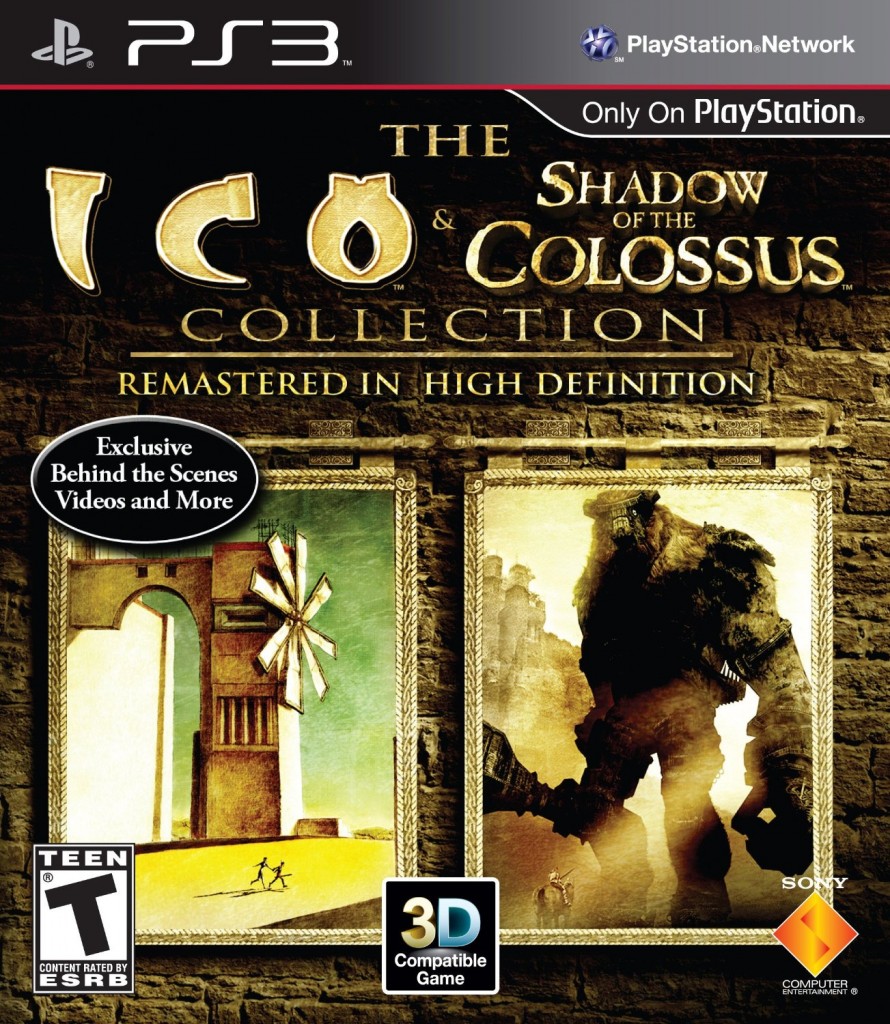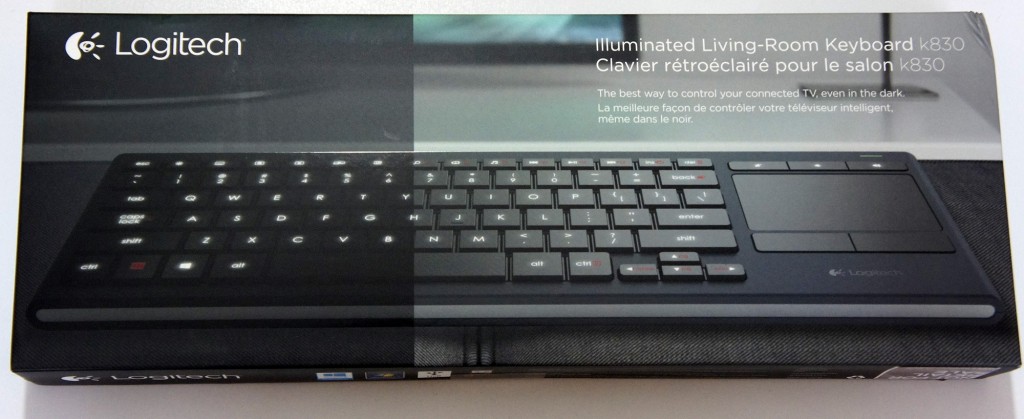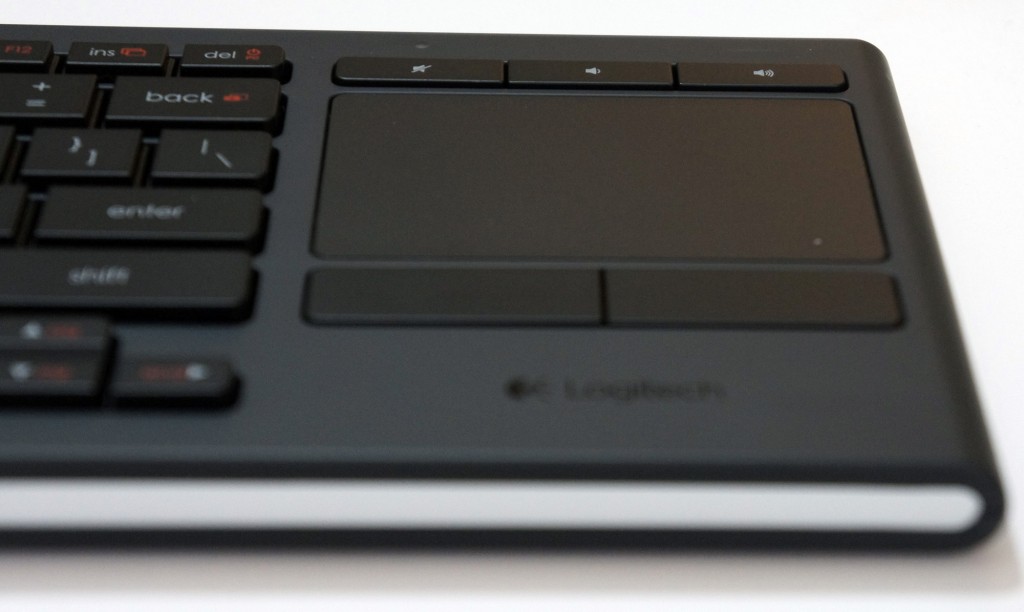Kilroy Joins the Army – Part VII – Basic Training (BCT)
May 3, 2015not,basic training,us,notoperator,army reception,usa,dfac,journal,kilroy,notop,basic,military,operator,reception,us army,not operator,bct,joins,meps,lift in the army,armyMilitary,Kilroy Joins the Army
My friend and fellow Not Operator author, Kilroy, said he was joining the US Army last year. We realized that his experiences would make for an interesting read, especially when there are so few online writings about what it is like, emotionally and physically, to experience modern basic training and beyond. He agreed to keep a journal of his time, and that we would publish it to Not Operator.
Kilroy tends to write his personal journals with pretty purple prose, so with his permission, I’ll be editing and paraphrasing his journal a bit to make it an easier read, with the help of my other friend and fellow Not Operator author, Michael. I’ll also be adding comments of my own in bold brackets [like this] to provide some extra context when necessary. If there’s large enough demand for it, we will post the full, unedited, version of Kilroy’s journal. To avoid making Kilroy’s experiences one giant wall-o-text, the journal will be broken up into an ongoing series of articles where it makes sense to do so. Plus, with Kilroy still in the Army, the journal is far from complete.
All entries in the Kilroy Joins the Army Series can be found here.
Without further ado, welcome to Kilroy Joins the Army – Part VII – Basic Training (BCT).
Day 25:
Red Phase testing began today. The day started with a group run, followed by meal time. From there, we were immediately hustled to take the test.
We basically were given the answers verbatim just before the test, and yet, people still managed to fail somehow. Human incompetence knows no bounds.
The hands-on portion of the test was just as simple – answers were given and help was provided so long as you were making an effort.
I suppose I should be thankful for the ease of testing; the more people that pass, the better for us.
Day 26:
Week 3 is over and we've finally found a rhythm. I got to do laundry again today, but didn’t have as much as last time due to proper planning during the week.
My first set of letters to fellow trainees have been passed along, and a set of replies have already come back to me.
We have been granted a brief reprieve; more hours to ourselves and a bit of time to decompress. I still long for silence and solitude. However, that’s unlikely to happen any time soon.
I still find this place to be frustratingly poorly managed. For all the hundreds of people we have, there’s only a very small number of washers and driers available, and at any given time, up to half of those are broken, some in more subtle ways than others.
After our short stint of personal time, we've been herded to the DFAC [Dining Facility] and then back for more classroom activity.
Class today was designed to try and get soldiers to adjust to stressful situations and learn how to bounce back afterwards. [Kilroy mentioned it was referred to as ‘Master Resiliency Training’].
However, the class is comprised of material you’d get from an introductory psych class, after watering everything down and passing it along through a game of ‘telephone’. Trained doctors teach the NCOs a dumbed down version of the material, who then have to teach an even more dumbed down version to us recruits. Having already covered this material in much greater detail before, it's a bit of a joke to me. I kind of miss the academic side of formal psychology.
Later in the day they had us do some area beautification, which mostly involved cutting grass with an E-tool [shovel] and edging lawn. It went over without much hassle, but our mealtime afterwards was interrupted by a storm developing very suddenly overhead.
Lightning lit up the area and the thunder rumbled in with almost no delay. As a result, they took us inside to let us finish our meal while rain continued to come down by the bucket-load outside. A nearby tree was struck by lightning not long after we went in.
Day 27:
Today is a holiday apparently. On a regular government schedule we would have had a four day weekend – but here it's just another day.
The day began with PT and mealtime in the darkness of morning and was followed by more classroom instruction.
Most of the class time today has been yet another CLS class [Combat Lifesaver]. Sleep remains a rare luxury to most of us, and the cool, dark classroom we were in made staying awake a Sisyphean task.
We got a break to eat and received a lecture about the importance of stretching, but then we were driven back to the classroom for more instruction.
Morale has definitely improved, but it seems to have not affected our discipline. The problem-children remain problem-children, and dealing with them is like watching your own kid run the ball down the field the wrong way in a football game.
Day 28:
The one benefit of midnight fire guard is that it gives me some time alone to reflect. My own personal morale seems to be hanging by a few threads – that feeling of burnout somehow still building up. We are near the halfway point, but that doesn’t seem to help my mental state. They talk to us about motivation, but I find no fulfillment in the things we do.
Never in my life have I spent five hours trying to zero a weapon. Honestly, I didn't think such a thing was possible. An off-the-rack M16 seemed to perform poorly when I applied my usual shooting technique, although I'll be the first to admit that my riflery skills aren’t as good as they should be.
The rest of the day seems like it will be either spent on this bleacher in hundred degree weather or ruck marching back to base. I’ll be the first to admit I'm definitely not cut out for infantry if it's mostly this type of activity, especially the marching and rucking aspects.
Day 29:
Today s another day at the range, but with one major caveat. I finished zeroing my weapon and got a good grouping yesterday, so I got bench-side seats to observe while the rest of the group went about their business still trying to set up their rifles.
I'm not normally a vocal protestor of doing nothing while there’s nothing to do (as opposed to doing nothing when there IS something to do), but I know the day will heat up dramatically and I’m not looking forward to more of same misery from yesterday.
[Later in the day, Kilroy continues below].
The day has warmed up considerably. They've given us busywork to do since there are enough of us who have finished by now that it's become unfeasible to keep us all on the bleachers.
The night ran extremely late, and ended with another march back in the darkness.
Day 30:
New range, new day, same shit.
After morning PT we were herded onto a bus and taken to a better maintained range than we were at yesterday, which had a computerized LOMAH system (Location of Misses and Hits).
Quite a few people in our platoon have yet to be able to zero their rifles properly. The day passed rather uneventfully, but I turned out to be as good of a shot as I had hoped to be, and I was complimented on my shooting by the range master. A nice change of pace from my experiences here so far.
Although I haven't received any additional letters from my local pen pal, we did manage to get more time to converse in person.
While we waited for the rest of our platoon to finish zeroing their weapons, we were given voluntary lessons on infantry troop movement and returning fire.
My focus remains scattered and I’m still worried about the limits of my own body. I’m really feeling the aches and pains of everything we’ve done so far, despite having worked out quite a bit in the months leading up to this. According to the staff here, toe numbness is considered normal and knee pain is something to be ignored. [Unsurprisingly, that assessment turned out to be wrong, as will eventually be made clear].
My day ends with another hour of non-sleep. Another night of fire guard requires me to wake up and change out of my PT uniform and into my ACUs, before doing it again in reverse when my shift ends. The worst part of this is that even though the shift is an hour long, you need to be awake 20 minutes before the shift begins in order to be properly dressed and ready. It really puts a damper on any REM sleep you might be hoping to get.
I've already done my best to prioritize sleep over everything else and yet there never seems to be enough to go around.
Day 31:
Today comprised of an all-day activity which began with an AGR run in the morning and then range time on the live fire testing course in the afternoon. [AGR stands for Ability Group Run, which has the trainees running in formation at different speeds depending on the group’s capabilities].
I felt that my performance was lacking on the shooting course today, and I hope to be able to improve before the day of the real test. I place value in my identity as a shooter and I plan on doing my best to justify that value.
This ends Kilroy Joins the Army – Part VII – Basic Training (BCT). Next time we’ll pick up where we left off, as Kilroy continues with Army Basic Training. Stay tuned for Kilroy Joins the Army – Part VIII – Basic Training (BCT).
Kilroy Joins the Army – Part VI – Basic Training (BCT)
April 26, 2015not,basic training,us,notoperator,army reception,usa,dfac,journal,kilroy,notop,basic,military,operator,reception,us army,not operator,bct,joins,meps,lift in the army,armyMilitary,Kilroy Joins the Army
My friend and fellow Not Operator author, Kilroy, said he was joining the US Army last year. We realized that his experiences would make for an interesting read, especially when there are so few online writings about what it is like, emotionally and physically, to experience modern basic training and beyond. He agreed to keep a journal of his time, and that we would publish it to Not Operator.
Kilroy tends to write his personal journals with pretty purple prose, so with his permission, I’ll be editing and paraphrasing his journal a bit to make it an easier read, with the help of my other friend and fellow Not Operator author, Michael. I’ll also be adding comments of my own in bold brackets [like this] to provide some extra context when necessary. If there’s large enough demand for it, we will post the full, unedited, version of Kilroy’s journal. To avoid making Kilroy’s experiences one giant wall-o-text, the journal will be broken up into an ongoing series of articles where it makes sense to do so. Plus, with Kilroy still in the Army, the journal is far from complete.
All entries in the Kilroy Joins the Army Series can be found here.
Without further ado, welcome to Kilroy Joins the Army – Part VI – Basic Training (BCT).
Day 20:
Today is the second Sunday of Basic Training. Just seven more weeks to go. As usual, I fear I'll be too burned out to continue for even another week.
At least so far today has gone almost as promised – breakfast and some time to ourselves. That’s about to change as the rest of the day will be filled with field work.
Our meals are slowly being replaced with MREs, which are just tasteless packaged food. Getting used to them makes me think when I manage to make my own food again it will be a sensory overload.
I'm still pondering what the purpose of all this is. They call this the soldierization process, but what I've noticed is that there hasn't been much change in who I am. The things I have noticed are how annoying most of the military courtesies and customs are, and how the culture in BCT seems to have no setting other than shouting as loud as possible.
A few others have also admitted to feeling totally burned out; we wonder if this situation is going to get any better. The arbitrary rules and smoke screens of lies and military decorum have contributed heavily to that feeling. Also, most classroom instruction seeks to somehow bore us to death or maybe teach us some kind of values that have not yet become clear.
Day 21:
The previous night ended miserably – another restless night of not enough sleep and a hacking cough that brought me to sick call today.
Army medical is just as faceless and impersonal as the rest of this place. We're herded through like cattle, and treated like criminals because we dared to get sick during basic training.
The treatment clinic they herd us into is built out of a portable classroom trailer; floors tiled with cheap linoleum and a layout that betrays the details of their budget (or in this case the lack thereof).
The in-processing personnel express annoyance at all of us, telling us how badly we're doing. To be fair, some of the others are coming in with only a few symptoms but I've waited until I had an opening in my scheduling to come in with a laundry list of symptoms that require some amount of attention.
The benefit of being here allowed me to converse with a girl from a different platoon that I wanted to talk to some more. She's agreed to correspond in letters, despite it being prohibited. Not much choice since people aren’t allowed to have conversations in person here. It feels like the cliché elementary school situation, stuck passing notes during class. The situation is reminiscent of 1984 – a set of heavy handed rules that forbids personal contact between two people as well as the old fashioned form of conversation – personal letters that served to express feelings and thoughts without hindrance.
The most ridiculous part of my military experience thus far is the amount of hatred every member of the cadre staff seems to have for sleep and talking. No one is allowed sleep and any attempt to get more than the prescribed amount is met with anger. In moments of inactivity, idle talk and conversation is met with the same hostility and yelling to make us fall back into silence.
On the other hand, when we are told to speak, they expect us to yell as loudly as possible or else we are accused of lacking motivation. To have time to dwell on the situation, I hate some of the aspects of being here – many of which I’ve noted already but at the same time I don't want out. I need to complete this training and make it to the end. I may be feeling burned out but I’m not going to quit.
Day 22:
I’ve lost my voice, which I mean in the literal sense and not the metaphorical one. I’m still feeling pretty sick and everything is a haze.
The day has proven uneventful thus far; morning PT was followed by classroom activity. Afterwards we were walked out into the field again to make some range cards, learn the basics of how to use them, and learn individual movement techniques (Low Crawl, High Crawl, 3-5 Second rush).
I'm a little annoyed since this has made all of my other paper sopping wet. It's surprisingly difficult to find and keep good paper dry in these uniforms. The rest of the day went by in a blur of exhaustion and illness. We ended up camping in the woods overnight.
Day 23:
We awoke just before the sound of mock incoming mortar fire manifested itself. It’s one hell of an alarm to have what approximates to a flash-bang going off a hundred meters away.
Rucking back the way we came felt harder than the initial journey, the final extension putting us out near a sandy training range. Our morale runs low, but we're becoming hardier, more people seem still in it to win it. I'm still occasionally wondering if this was all a mistake. I'm going to continue struggling through it, I’m already here and I’ve made it this far.
The feeling of sand in my mouth is a constant reminder of where I am and what I need to accomplish. All my eggs are in this one basket, my only desired career path is a military one. I'm just super burned out though, that's really what it comes down to.
We were taken to weapons training today using the EST system [Engagement Skills Trainer, there’s a video on it here if you want to see how it works] firing airsoft light-guns at virtual targets. I did fairly well, qualifying on my first run. There are a few people who are struggling and can't seem to get any of their virtual bullets onto virtual paper.
Day 24:
The first of the real APFTs [Army Physical Fitness Test] was this morning. My score was high enough qualify for White Phase, but I’ll need to score higher in order to graduate from BCT. At least that's a significant load off my mind for now.
Morale has improved despite the fact that we're all totally exhausted. I have yet to find even a moment of time to start writing the letters I mentioned earlier.
Later in the day were told that we need to return to the virtual range area again for people to finish their training – yet another march through the hot sun. Mail came later at night, filled with care package items that I plan on making good use of and bringing news of the outside world. [I sent him baby wipes, toothpaste, and a pen, along with a summary of the news that happened during those few weeks].
Day 25:
Today has been more of the same, but with a small twist: we were taken to the PX and made to purchase another haircut in addition to being allowed to purchase additional supplies. [The PX stands for Post Exchange, which is basically a retail store that sells goods and services to military personnel].
I'm more run down than ever before, feeling even sicker than I was a couple days ago.
So far, after PT, the day has been laid back in comparison to the days prior. Most of our activities have been centered around Red Phase review and learning random facts for the upcoming test that will allow us to move us into White Phase.
Mistakes were made that landed us a free smoking by the senior Drill Sergeant. [A smoking is usually comprised of pushups, sit-ups, and/or running].
Physical activities aside, I'm still surprised how low key the day has been. The sensation that BCT is basically just Kabuki Theater continues to develop as I have more time to observe the activities of the Drill Sergeants. I'm unsure if Kabuki Theater is really the best analogy, but it's the one that stuck.
Each of the Drill Sergeants wears a mask of a demon, playing their role with dedication. We, the trainees, are involved as an active audience, and the central component of the story is always us, never them. In this play, we control our own successes and failures, and the demons will eventually fade away when we fully succeed.
The demons all have individual roles, some doing good cop, some doing bad cop. Some Drill Sergeants are much harsher than others. One in particular has been especially severe, which has worn the patience of his platoon thin, while my own Drill Sergeants have been much more agreeable.
I still haven’t fully pinned down the narrative since it seems to vary wildly on a day to day basis.
This ends Kilroy Joins the Army – Part VI – Basic Training (BCT). Next time we’ll pick up where we left off, as Kilroy continues with Army Basic Training. Stay tuned for Kilroy Joins the Army – Part VII – Basic Training (BCT).
Review: Netgear ProSAFE 8-port Gigabit Click Switch (GSS108E)
April 23, 2015port,prosafe,internet,click,unmanaged,gss108e,smart,eight,netgear,ethernet,gigabit,router,switch,managed,8Tech Reviews,Technology
A few years ago, I was hosting a LAN party at my apartment. One of my friends was setting up his stuff and asked, “How do I connect to the internet?” I told him to just plug his Xbox and computer into the gigabit switch. He responded by giving me a look like the one below, asking “what the heck is a gigabit switch?”
I thought the answer was obvious, but apparently the average consumer does not know what a gigabit switch is. I suppose the more accurate term for one would be “Gigabit Ethernet Switch”.
An Ethernet switch refers to a device with a bunch of Ethernet ports on it for devices to plug into. The Ethernet switch is then plugged into a router, which is plugged into a modem, which is connected to the internet (hopefully). Think of it as a power strip for internet.
However, a switch should not be confused with a router – a router assigns devices IP addresses and routes traffic, an Ethernet switch just allows more devices to connect to a router. The “Gigabit” part of “Gigabit Ethernet Switch” refers to the speed provided by each Ethernet port on the switch, which is one gigabit (equivalent to 1/8th of a gigabyte) of data per second.
I have a few gigabit switches I keep handy. I use one of them for my own home networking, and the rest sit in a duffle bag affectionately known as the LAN-in-a-bag, or LANbag (which contains gigabit switches, Ethernet cables, power strips, extensions cords, etc.). All my gigabit switches are unmanaged, which means they handle all traffic agnostically. An unmanaged switch is basically just a ‘dumb box’ that doesn’t know or care about the devices connected to it or the traffic passing through it.
A managed switch has all sorts of configuration options, such as a command-line interface, remote management access, a web interface portal for management, along with all sorts of other more technical features. These are typically used for medium to large scale enterprise solutions.
Netgear sent me their ProSAFE 8-port Gigabit Click Switch (GSS108E) for review, which isn’t clearly defined as a managed or unmanaged network switch. With regards to features and price, it seems to fit in with Netgear’s line of Unmanaged Plus Switches, though the line of Click Switches is technically separate from the Unmanaged Plus Switches.

This designation is a bit of a misnomer, since both the Cllick and Unmanaged Plus lines have management features, though not as many as a full-fledged managed switch would. Wikipedia defines this category as “Smart Switches”, which are is a subcategory of managed switches.
Being “Smart” means that the Gigabit Click Switch (GSS108E) can do all sorts of things unmanaged switches can’t do such as QoS (Quality of Service, which effectively allows the user to determine a hierarchy of priority for different types of traffic, like giving online gaming priority over torrenting for example), rate limiting (which is handy for all sorts of useful stuff like throttling your roommates’ internet to make sure you get all the bandwidth), and the ability to create a VLAN (virtual local area network, which is essentially a sub-LAN on an existing physical LAN).

The Click Switch line is part of Netgear’s ProSAFE collection, which is Netgear’s Business/Professional class of network devices. Because of this, a lot of features the Gigabit Click Switch (GSS108E) supports will likely only be used in a business environment, but it still has a place in the home as well for the same reason you likely drive a car with features you never knew about, let alone use – it’s nice, works well, and the extra features are something to brag about, or use if you ever get around to reading the manual.
I know those of you who don’t know or care about the technical details of networking probably just skimmed over the last two paragraphs, though I question why you’d be reading a gigabit switch review in the first place…
The “Click” in the Gigabit Click Switch (GSS108E) refers to the most visible feature of the switch – the easy mounting bracket that allows for four different mounting configurations. It can be mounted horizontally, either from the rear or from the bottom, as well as vertically, also from the rear or the bottom, for a total of four possible configurations.

Personally, I don’t have a good place to mount the switch in my apartment, and I imagine the leasing company may take issue with me screwing a gigabit switch into a wall. I could attach it to my desk, but considering I have years-old Ikea furniture I’m always on the verge of replacing, I figure it’s not worth my time or effort at the moment. If I were to mount the switch though, it’s very easy, it just requires use of the two simple screws that came with the switch.
The switch is much longer than a typical unmanaged eight port gigabit switch, but of course, it has all sorts of management features that require additional internal hardware, and since you’re expected to mount it on a wall or under a desk, the difference in size hardly matters. There’s an obvious joke to be made here, but I like to think I’m above that. (I’m not).

The Gigabit Click Switch (GSS108E) works beautifully as a plug n play unmanaged switch, requiring no initial configuration unless you want to do it.
If you do decide to customize the settings on the switch, you can either do it via access to a web portal, or you can use Netgear’s ProSafe Plus Switch Utility software, which has quite a lot of options. The guide for that can be found here if you want to spend your evening reading technical manuals.
To be perfectly honest, I have very little experience with professional-level networking, so many of the options were beyond my need or understanding. However, the ability to manage traffic over the switch is fantastic. For users that have a mediocre or poor router, the gigabit switch can make up for a lot of the router’s deficiencies (provided the user’s devices are plugged into the switch. A switch won’t help improve Wi-Fi signal or speed in the same way that a surge protector won’t improve your cell phone signal or speed, they’re not related).
The full feature list for the Netgear ProSAFE Gigabit Click Switch (GSS108E) is below:
Hardware
- 1-2-3-4 Click Mounting system allows for
- Vertical/side mount
- Vertical/rear mount
- Horizontal/side mount
- Horizontal/rear mount
- Multi-directional power cable can be routed outwards or downwards
- 2 Quick access USB charging ports for tablets or smartphones
- Rugged reenforced plastic (8-port) and metal (16-port) case
- Internal power supply eliminates the wall wart power adapter
- LED lights can be turned off for non-distracting placement next to a TV
- Silently runs without a fan
Traffic Management
- Auto Negotiation of speed and duplex modes
- 2x Flow Control
- DHCP Client
- Dynamic MAC address management
- 1Q-based or port-based VLAN
- QoS based on WRR, strict priority, or both
- Port-based and IEEE801.2p-based QoS
- QoS based on ToS (Type-of-Service)
- DSCP Support
- Rate Limiting
Multicast Efficiency
- IGMP snooping, v1, v2 and v3
- IGMP Snooping querier (16 and 24 port models only)
- Blocking of unknown multicast traffic
- Act as static multicast router port
Reliability, Performance and Troubleshooting
- Port mirroring both on ingress and egress traffic
- Jumbo frame support
- Broadcast Storm control
- Cable diagnostics
- Loop Detection
- DoS Prevention (GSS116E Only)
- Energy Efficient Ethernet (IEEE802.3az) compliant
Switch Management
- Plus Utility
- Web-based Management
- Firmware Upgrade thru Plus Utility (TFTP)
- Firmware Upgrade thru Plus Utility (TFTP)
- Configuration Upload (to Server)
- System password protection
Another huge benefit of getting a Netgear ProSAFE switch is that they all come with Netgear’s ProSAFE Lifetime Hardware Warranty, as opposed to many consumer-grade switches which come with a warranty of just one year. This will be convenient for when you one day damage your gigabit switch in an unfortunate boating accident; the lifetime warranty will have you covered. (I’m fairly certain the warranty doesn’t actually cover unfortunate boating accidents).
The full specifications for the Netgear ProSAFE Gigabit Click Switch (GSS108E) are below:
- Model Description: 8-port Gigabit Click Switch
- Gigabit Ports: 8
- USB Charging Ports: 2
- Max MAC entries: 8K
- Buffer Size: 2 Mbit
- VLAN (Number Supported): 64
- Supported Multicast Groups: 128
- Auto Denial-of-Service Prevention: No
- Port Trunking: No
- Max Number of Source Ports Allowed (Many to 1): 1
- LED Lights Off for Stealth Operation: Yes
- Internal/External Power Supply: Internal
- Max Power Consumption (Watts): 14w
- Number of Fans: 0
- Acoustic Noise Level @25C (dBA): 0
- Operating Temperature: 32° to 104°F (0° to 40°C)
- MTBF: 1,031,177 hours
- Weight (kg): 44kg
- Dimensions (WxDxH) mm: 305 x 65 x 35mm
- Case Material: Plastic
- Electromagnetic Compliance (A or B): B
As listed in the specs, the switch has eight gigabit Ethernet ports, and it also includes two USB charging ports. These are nice additions as the presence of the USB ports differentiates the Click switch from other eight port gigabit switches, even to the casual observer. Some casual observers might mistake the USB ports for something silly like Firewire or HDMI, but that’s the fault of the observer; USB ports look nothing like Firewire or HDMI.
The Netgear ProSAFE 8-port Gigabit Click Switch (GSS108E) currently retails for $69.99.
There are a couple things the average consumer may want to consider. Unmanaged consumer-grade eight port gigabit switches can be found in the approximate $25-$35 range, so for someone looking for something very basic to just extend the number of Ethernet ports available to them might find the GSS108E might be too pricey.
On the other hand, someone who has a poor to mediocre router might want the extra features included in the GSS108E, with the added benefit of the USB charging ports. In that case, the $69.99 GSS108E is a great value.
Also, power users may want a gigabit switch with the modular mounting capabilities and advanced network management options the GSS108E provides, for far less than a typical managed gigabit switch would cost.
In that same vein, businesses both large and small would likely benefit from an affordable switch which has a place in any conference room or at the hub of any set of desks.
Gigabit switches are not something I typically put a lot of thought into, but thankfully Netgear does. The Netgear ProSAFE 8-port Gigabit Click Switch (GSS108E) certainly packs more features and value than I expected in a sub-$100 gigabit switch.
Kilroy Joins the Army – Part V – Basic Training (BCT)
April 19, 2015not,basic training,us,notoperator,army reception,usa,dfac,journal,kilroy,notop,basic,military,operator,reception,us army,not operator,bct,joins,meps,lift in the army,armyMilitary,Kilroy Joins the Army
My friend and fellow Not Operator author, Kilroy, said he was joining the US Army last year. We realized that his experiences would make for an interesting read, especially when there are so few online writings about what it is like, emotionally and physically, to experience modern basic training and beyond. He agreed to keep a journal of his time, and that we would publish it to Not Operator.
Kilroy tends to write his personal journals with pretty purple prose, so with his permission, I’ll be editing and paraphrasing his journal a bit to make it an easier read, with the help of my other friend and fellow Not Operator author, Michael. I’ll also be adding comments of my own in bold brackets [like this] to provide some extra context when necessary. If there’s large enough demand for it, we will post the full, unedited, version of Kilroy’s journal. To avoid making Kilroy’s experiences one giant wall-o-text, the journal will be broken up into an ongoing series of articles where it makes sense to do so. Plus, with Kilroy still in the Army, the journal is far from complete.
All entries in the Kilroy Joins the Army Series can be found here.
Without further ado, welcome to Kilroy Joins the Army – Part V – Basic Training (BCT).
Day 16:
Today begins like every other day – in the dark, dressed in soiled camouflage, and waiting for the sweet release of death. [Kilroy is clearly enjoying himself]. I'm on fire guard duty, doing a whole lot of nothing during a whole lot of empty time I could be using for sleep. [This fire guard duty happened to be the midnight shift, which happens to be approximately the halfway point for their sleep schedule].
I’m a year older today, though there’s no time to consider it. In any case, if anyone knew, the Drill Sergeants would smoke me. [The Drill Sergeants will usually make people do extra pushups/sprints/etc. on their birthdays].
The entire day was consumed by obstacle course challenges from early in the morning until late in the afternoon. Courses were split into two separately named activities: “Fit 2 Win” and a “team building challenge course”. The “Fit 2 Win” course is a traditional obstacle course run, and the “team building challenge course” was a set of thinking puzzles meant to foster group development.
We started the day dressed as trainees and ended it dressed in mud. The South Carolina sand clings to everything; it’s a fine grit that refuses to let go no matter how much you try to brush it off – especially since no one is given the luxury of running water or the ability to wash up. Even after returning, there was no time to shower and I spent the rest of the day wallowing in my own filth.
Laundry is starting to pile up again and the rancid smell of multiple days' sweat and grime hangs in the air of our bay. The Drill Sergeants complain of it, yet it should be blindingly obvious whose fault it is that we have no time to do laundry.
Day 17:
Today began in the dark as usual; the call coming for all of us to proceed downstairs where they had us march 2 miles under the load of a heavy rucksack. After that, we were sent off to do the Land Navigation activity. Despite my initial trepidation, the team worked out well.
The Night Land Navigation activity went just as well. I wrote down all the points we came across during the day just in case, and it turned out to save us from having to redo them manually at night, which made the task supremely trivial.
After another day in the South Carolina outdoors, I get the sense that I may never be rid of the South Carolina sand that inundates every outdoor activity we do, with fine particles clinging to everything. Somehow no matter what, you always seem to find the sand permeating all of your belongings, even if they’ve just been washed. The Army slogan should be: “Join the Army, eat sand.”
As always, I’m missing a variety of things available to you in civilian life. I’m looking forward to watching a Hong Kong film next chance I get. We're almost two weeks into BCT and I'm somehow feeling even more burned out than before. Even with these daily changes to break the monotony, I'm still desperate for sleep and time to myself. All of us are constantly tired, yawning and miserable, but it seems we're becoming acclimated.
Day 18:
Yesterday ended with us staring up into a midnight blue sky occluded by the branched canopy of the forest. Today began the same way. [In case it isn’t obvious, they camped in the woods overnight].
Immediately, they’re having us hurry to pack, hurry to play security in the not-yet-light woods, hurry to meals, hurry, hurry, hurry. They herd us into bottlenecks of time we can't control and then complain and yell at us when we aren't perfect. This perfectly exemplifies the military practice of “hurry up and wait”.
Many of our own standards have fallen; getting parts of a heater meal are the most enjoyable thing we’ve had. [From what Kilroy tells me, they’re even worse than MREs (Meal, Ready-to-Eat)]. I haven't enjoyed any of it, but at least it’s not the cold food we’ve been given as of late.
This morning I’ve started thinking about my career choice again. I still feel the call to write, but that’s not the path I’ve chosen. Instead, I chose a job that requires physical challenges along with a willingness to abstain from critical thinking. However, the appeal of being able to choose my own life – especially in a creative position is starting to feel significantly more alluring.
I haven't had any dreams the past few nights – the lack of long portions of sleep robbing me of my mental escape. Occasionally I have quick dreams in my various seconds of micro-sleep, but upon waking I’m left with nothing but faint recollections of colors and lights that have no meaning outside of the dream.
Today's activities thus far have been a full ruck march back from where we had camped and into the CBRN [Chemical Biological Radiological Nuclear] training range – a place where they had us dress in our MOPP suits [Mission Oriented Protective Posture, just a fancy name for a HAZMAT suit] and don gas masks. The heat was sweltering and I was effectively blind with the suit and mask on.
[Once inside the gas chamber, they had the trainees remove their facemasks to experience what the CS gas (tear gas) feels like].
Exposure to the gas itself was not as bad as it was hyped up to be. The phrase I associated with it was “like Taco Tuesday with the special sauce.” The actual feeling of burning subsided rapidly from the initial exposure, but the pain in my eyes, nose, and throat wasn’t any worse than pepper spray. [Since I’m sure you are wondering why Kilroy knows what pepper spray feels like, the short story is that he had a pepper spray canister, a friend didn’t know what it was and pressed the release button to see what it did, accidentally spraying it in a small dorm room].
The rest of the day was filled with more classroom instruction. We had a general feeling of exhaustion hanging in the air between us all. I'm adjusting mentally; some aspects of my thought process have continued to shut down while I struggle to keep others alive. The Army likes to do your thinking for you, so you adapt to that mentality to get by, but it’s not something I want to become long-lasting.
A running joke I have with Ryan [that’s me!] is that if he ever joined the military, he’d have a rucksack full of nothing but baby wipes, opting to dump out all additional gear to make room for more wipes. The used wipes would weaponized in the absence of firearms or ammunition.
The funny thing is that to clean ourselves in the field, we bring baby wipes. I’ve found myself in the field with my FLC [Fighting Load Carrier, basically just a vest with a bunch of pouches] on and my spare mag pouches shoved full of wipes. They’ve been used to clean ourselves, our weapons, our hands, etc. They’re surprisingly helpful to have handy.
Day 19:
Reality cuts out and cuts back clearly, like a quick scene change in a movie, the time in between lost to me. [In plainer English, Kilroy went to sleep, but was up again quickly, feeling like no time had passed]. I’ve been assigned the midnight shift fire guard again, just sitting around waiting for something to happen.
Being bay boss is wearing my patience thin due to being inundated by constant queries about whether or not people are on fire guard, as if they expect me to have more personal time than anyone else. The fire guard schedule is written on the damn board, do not ask me.
There’s more variety in our daily morning PT now, with a new running activity that I managed to struggle through. Beyond that, each day is more of the same – a kind of rhythm comprised of hectic mornings and low energy afternoons, which ends with evenings of frustration.
I've run into a few people I know from reception battalion, all pretty bright kids. The catch is they are all being chaptered out to go home, either due to injury or because they want to quit. One of them was someone I flew out from Los Angeles with.
It's a surreal experience knowing that your peers are leaving one by one – people you thought would make it. The question is what they'll do now that this career path is no longer available to them. If I were to fail at this for some reason, the idea of being a monk seems to have some appeal to it, as ridiculous as it sounds. [There’s a 0% chance of Kilroy becoming a monk].
The advice I received about this place was to do my best to stay positive, but in light of seeing my peers disappear, that’s harder than ever. We’re just about at the end of the second week of BCT and the number of people who are sick is rapidly increasing, possibly even outnumbering the amount of people who aren't. One of the recruits in our bay has even gone to sick call because they were spitting up blood.
Morale is low – The systems for fire guard are making everyone crazy. However, my responsibilities have lightened up. Thankfully, the task of assigning fire guard and bay boss duties have finally been passed on to someone else.
This ends Kilroy Joins the Army – Part V – Basic Training (BCT). Next time we’ll pick up where we left off, as Kilroy continues with Army Basic Training. Stay tuned for Kilroy Joins the Army – Part VI – Basic Training (BCT).
Kilroy Joins the Army – Part IV – Basic Training (BCT)
April 12, 2015not,basic training,us,notoperator,army reception,usa,dfac,journal,kilroy,notop,basic,military,operator,reception,us army,not operator,bct,joins,meps,lift in the army,armyMilitary,Kilroy Joins the Army
My friend and fellow Not Operator author, Kilroy, said he was joining the US Army last year. We realized that his experiences would make for an interesting read, especially when there are so few online writings about what it is like, emotionally and physically, to experience modern basic training and beyond. He agreed to keep a journal of his time, and that we would publish it to Not Operator.
Kilroy tends to write his personal journals with pretty purple prose, so with his permission, I’ll be editing and paraphrasing his journal a bit to make it an easier read, with the help of my other friend and fellow Not Operator author, Michael. I’ll also be adding comments of my own in bold brackets [like this] to provide some extra context when necessary. If there’s large enough demand for it, we will post the full, unedited, version of Kilroy’s journal. To avoid making Kilroy’s experiences one giant wall-o-text, the journal will be broken up into an ongoing series of articles where it makes sense to do so. Plus, with Kilroy still in the Army, the journal is far from complete.
All entries in the Kilroy Joins the Army Series can be found here.
Without further ado, welcome to Kilroy Joins the Army – Part IV – Basic Training (BCT).
Day 11:
The dawn of a new day is soon approaching, but I'm awake long before it around 0400 [4:00 AM]. We’ve barely just woken up and they already have us jumping and running in cold wet grass. Afterwards, we have mealtime at 0700 [7:00 AM] in the same prison-like atmosphere as always, before going back out for more running and pushups. The post-breakfast workout consists of walking out of the DFAC, doing 25 pushups, sprinting to a shed, then a drill pad, followed by another 25 pushups and situps.
Many of us are getting sick. The symptoms include but are not limited to cough, sore throat, general malaise, and a variety of other things that you’re likely to get when being constantly exposed to 50 other people 24/7. I'm attempting to prevent getting sick by taking a dose of vitamin C with every meal, but my efforts are being hampered by the near constant exercise and lack of rest. My immune system feels noticeably compromised.
If I haven't mentioned it before, we're not allowed to simply walk places – everywhere we go is either done in formation marching or running. We are also never supposed to be left unattended; we’re required to have a “battle buddy” with us at all times, even for the simplest things (including going to the bathroom). Even if you want to have a private conversation with the chaplain, you can’t do so without a buddy nearby.
Today's agenda has actually been quite sparse. We haven’t had anything aside from running, eating, and classroom presentations concerning ear protection and land navigation.
We got ear plugs during the first presentation. The second presentation was frustrating to sit through, as many people couldn’t seem to comprehend even the most basic aspects of land navigation, including how to read maps or how to use a compass.
As a team, we're having teething problems regarding leadership and teamwork. Victory Tower awaits us tomorrow and that activity will make or break us. [To quote Wikipedia, “Victory Tower is an exercise where recruits must navigate through several obstacles at extreme heights, including climbing and traversing rope ladders and bridges. They must then rappel down a 50-foot wall (back-first, with rope harness). In the Teamwork Development Course, squads must negotiate a series of obstacles, with emphasis on working as a team rather than as individuals.”]
Day 12:
Today is Victory Tower, and it’s hotter than hell – it feels like my brain is cooking. As dawn broke, the temperature already had entered Heat Category V [Temperature of > 90°F].
The individual trials weren't difficult; they were comprised mostly of fairly basic rope and wall climbing activities. However, one member of my platoon tore both of her ACLs doing the practice (miniature) rope swing on the ground floor. The goal was to just swing from one side to another, but she landed wrong on both knees and was told to do it over and over until she got it right, despite consistently landing on her knees. After about 4 or 5 times she was told to proceed to the next station only to find out she couldn’t stand up anymore. She was then removed from training. [Kilroy ended up running into her again later, so he expands on her story later in the series].
Afterwards, someone manage to screw everything up by telling off the First Sergeant. He had been asked to do something and told the First Sergeant to “fuck off”, not realizing or caring who he was.
We still haven't gotten it together as a team yet. Morale is slipping, and people have been letting their tempers get the best of them, rushing to anger and instigating all sorts of petty arguments.
As bay boss, I've learned it’s best to just solve our issues with a series of unpopular but necessary decisions. People always seem to take it personally when you assign them a task, and I started out trying to take people’s concerns into account. I no longer have that luxury, and I’m sick of dealing with it anyways.
We still haven’t been given the opportunity to do laundry, so none of us have access to clean clothing. There simply hasn’t been enough time to be able to do laundry, and we’ve run out of new clothes as well. Though even straight out of the packaging, the new clothes start out with their own weird smell.
Unfortunately, I'm more often than not simply regretting my decision to be here and it hasn’t even been a full week of BCT yet. To top it off, I've picked up some kind of rash on the inside of my elbows from doing PT [physical training] in the grass.
However, the actual time to reflect on the misery is nonexistent since we are constantly rushed from task to task. The actual knowledge they expect of us to retain is basic, but they expect it to be memorized and repeated verbatim with no exception.
Soon we'll be losing one of our own to a medical discharge, the one who fell in the shower and concussed himself. He’s been back with us since the accident, following us around with a ‘non-trainer’ status, meaning he’s not allowed to participate, though that hardly matters since he’ll be discharged soon anyways. I've noticed symptoms he’s experienced since the accident, which include confabulated memories, some general confusion, and a loss of visual acuity in the right eye.
Basic training feels like Kabuki Theater. Everything feels scripted, not real, causing a mental disconnect. You do things because you’re told, and have no independent thought of your own. You know everyone around you is an individual with their own personality, but they’re required to adapt to the demands of BCT. Even the Drill Sergeants have to shed their personalities and take on a ‘Drill Sergeant persona’ for the sake of maintaining the act.
Day 13:
Morale is at an all-time low. At least today we finally got to do laundry, though the sacred personal time we were promised passed by far too quickly.
An incident turned the previously good mood of our group into misery in short order.
My job as bay boss is all downside. I have no real power to actually decide anything beyond who gets to do what, but my unit seems to blame me personally for assigning them tasks, despite the fact that they’d be assigned either way.
I miss having time to myself to just think. I miss writing; this journal isn’t enough. I miss the sound of my typewriter. I miss tea. I miss quiet. Granted, I knew I’d have none of those things when I volunteered for this, but it doesn’t make it any more enjoyable.
Our two Drill Sergeants are enlisted men to the core; they would probably bleed red, white, and blue if you cut them. My point is just that I can tell they are really here trying to help us. I also like that out of all the available Drill Sergeants, ours are the most straightforward with us and the least unnecessarily loud, especially compared to those assigned to other platoons.
Day 14:
We were issued our rifles today. My M16A2 has a lot of play between the upper and lower. We haven't been asked to name our rifles, which I’m perfectly happy with.
Time is beyond a luxury for us, and today we had none to ourselves, it was spent doing a ton of things with no breaks at all. In truth, this day went by so fast I had no time to actively document it. Consequently, my day was filled with shouted instructions and a haze of lost hours and military jargon.
Day 15:
My time here has left me with a distaste for military things as my mind appears to have fixated on just the negative aspects of being in the military. My feelings of regret have peaked, and I’ve been dreaming about life after the military – the freedom to do what I enjoy, like quiet mornings and time alone to think and drink tea [Kilroy really loves tea].
I would love to have just one morning to myself again, without all the hustle and bustle of the barracks. Being up at 0400, in the dark, to make beds under the light of a dim red light lens is aggravating, but I'm already well past my mental burnout point. [For reference, the light Kilroy refers to is the flashlight they’re given, a Fulton MX991/U Flashlight with a red light filter].
Today has been filled with classes again, all of which take place in a dimly lit room that puts us all to sleep. The strangest part of my experience in BCT is that none of the rooms on the base have any clocks. Our sense of time relies on the feeling of our schedule.
Despite all the promises we were given and told were guaranteed, we have yet to have a large enough chunk of real, usable time to ourselves to decompress and prepare for bed at the end of the day. According to TR 360-6 [TRADOC, US Army Training and Doctrine] we are required to have an hour of personal time at the end of each day. Even when provided with the hour, 15-30 minutes of it are killed by a formation just prior to lights out.
This ends Kilroy Joins the Army – Part IV – Basic Training (BCT). Next time we’ll pick up where we left off, as Kilroy continues with Army Basic Training. Stay tuned for Kilroy Joins the Army – Part V – Basic Training (BCT).
5 Video Game Remasters We Actually Want
April 11, 2015remaster,ps3,halo 2,microsoft,kazooie,x-men legends,collection,sony,xbox one,tooie,dark souls,definitve edition,360,xbone,shadow of the colossus,dark souls 2,games,star wars,raven collection,ico,halo mcc,banjo,xmen legends,hd,ps2,xbox,banjo and kazooie,kingdom hearts,definitive,xbox 360,ps4,nuts and bolts,dark souls ii,edition,master,marvel,game,team ico,halo,gaming,kotor,ultimate allianceGaming Analysis,Gaming
I don’t think I’m the only one annoyed by what seems like a new video game remaster being announced each week. ‘Remasters,’ ‘Collections,’ ‘Definitive Editions’, or whatever term publishers are coming up with to trick people into buying old games, have been flooding the market lately and more will inevitably be announced shortly.
Perhaps the most disappointing aspect of these remasters is that most of them haven’t been adding any sort of real value aside from simply upping the game’s resolution and/or framerate. Take the most recently released remaster, Dark Souls II: Scholar of the First Sin, for example. The game is a 1080p and 60fps version of Dark Souls II, complete with all three DLC packs from the game. That’s about it.
Sure, the Scholar of the First Sin increased the maximum amount of players in an online game from four to six and changed enemy spawn locations, but is that really enough to justify purchasing the game again if you already own it?
I know that there is some overlap here for gamers who missed out on playing certain games when they were released the first time around. However, the number of potential buyers who have never played the remaster is obviously much smaller when compared to the number before the release of the original game. Despite all of this, these kind of games must be selling well because, well, they keep on being made.
Does anyone remember in the early days of the PS4 and Xbox One, where if you owned a game like Battlefield 4 on PS3 or Xbox 360, you could upgrade to the PS4/Xbox One versions for as low as $10 for a limited time? That is essentially what you are getting now, a PS4/Xbox One version of the same game, except, in most cases, you are paying the full $60 price of a video game.
Fortunately, a few developers actually understand how to do a remaster right and actually give you the best bang for your buck.
Rockstar added the highly anticipated first-person mode to the PC, PS4, and Xbox One versions of Grand Theft Auto V, as well as some new missions, weapons, and vehicles.
State of Decay developer, Undead Labs, is offering a 33% discount on the purchase of State of Decay: Year-One Survival Edition to those who already own a copy of State of Decay on Xbox 360 or PC. The PC version of the recent Sleeping Dogs remaster is also worth mentioning, as the Definitive Edition on PC was only $30, or $15 if you owned the original game. Xbox One and PS4 versions were still $60, though.
Networking issues aside, the Master Chief Collection on Xbox One is the perfect example of a remaster done right. Not only could you play Halo: Combat Evolved on Xbox Live for the first time ever (when you could actually get matchmaking to work), but Halo 2 received the full “Anniversary” treatment as well.
Like the Halo: Combat Evolved Anniversary Edition which came out in 2011 for Xbox 360, the Master Chief Collection version of Halo 2 received a dramatic facelift. The resolution and framerate were bumped to 1080p and 60fps respectively, and every cutscene from the original Halo 2 was remastered and given stunning new cinematics by Blur Studio. There were also new hidden collectibles to find that dove deeper into the Halo lore in preparation for Halo 5. Additionally, six of Halo 2’s multiplayer maps were re-made entirely on the Xbox One engine by Max Hoberman (former lead designer at Bungie) and his current studio, Certain Affinity.
Combined, all of these features easily give you enough value to justify the full $60 retail price of the game. Oh, and let’s not forget that the Master Chief Collection also included remasters of Halo:CE, Halo 3, and Halo 4, as well as exclusive access to the Halo 5 beta.
All of these remasters have gotten me thinking of the games I would like to see re-made to play on current generation consoles, in a fashion similar to the Master Chief Collection. By re-made, I mean updated graphics, remastered cutscenes, and other unique features that would help warrant a purchase. I’m going to take the easy way out and imagine we’re in a perfect world where cost and development time on actual game projects would not be affected by creating these remasters.
Hot on the heels of the rumored Batman Arkham series collection, here are my top five choices for remasters that we gamers deserve and need right now:
1) Kingdom Hearts Collection – Kingdom Hearts 1.5 & 2.5 (Xbox One, PS4)
Few video games serve the purpose of uniting our inner child with our inner nerd better than Kingdom Hearts does. With Kingdom Hearts III now in development, a complete Kingdom Hearts collection released in the near future would serve the purpose of providing a refresher on the story (which spans a total of 7 games – 2 on consoles, 5 on handhelds), while attracting new gamers to the series, which originally launched in 2002.
Having all seven games in one place, with remastered graphics and cutscenes, would be a hard deal to pass up. Additionally, an Xbox One version released ahead of the Kingdom Hearts III launch (release date to be announced) would mark the first time a Kingdom Hearts game could be purchased for Xbox and would surely sell well. Interestingly enough, Kingdom Hearts 2.5 was just released on PS3 only in December 2014. Could a complete collection on PS4 and Xbox One follow soon after?
2) Marvel’s: Raven Collection – X-men Legends, X-men Legends II: Rise of Apocalypse, Marvel: Ultimate Alliance 1, & Marvel: Ultimate Alliance 2 (PC, Xbox One, PS4)
One of my favorite developers from the early 2000’s, Raven Software made a name for itself with the awesomely fun Star Wars Jedi Knight games. From there, Raven hit their stride with the X-men Legend and Ultimate Alliance games; top-down multiplayer action RPG’s. Diverse and expansive character rosters, combined with interesting stories and enjoyable gameplay, helped cement the series as a must-buy among Marvel fans and gamers alike.
Aside from Marvel Heroes and Lego Marvel, Marvel has been lacking in the video game department for years. Alternatively, DC has had bigger hits recently like Injustice: Gods Among Us and DC Universe Online. Throw together a collection of remastered versions of Raven's Marvel games, with some new exclusive characters and costumes added to the rosters, release it around the same time of the next big Marvel movie, and you might as well be printing money.
P.S. Before you start throwing things at me, the only reason why a Jedi Knight game didn’t make my list is because I already picked a different Star Wars series below. Also, I know Ultimate Alliance 2 sucked; I just threw it in the Raven Collection for completeness. You don’t have to play it if you don’t want to.
3) Team ICO Collection: Ico & Shadow of the Colossus (PS4)
Arguably two of the best adventure games of all time, Ico and Shadow of the Colossus are cult classics from the PS2 era. Even to this day, I don’t think I’ve come across another game that I thought was as gorgeous and atmospheric as Shadow of the Colossus was when I played it for the first time.
Now I know this collection has been done before, as evidenced by the box art above, but that was simply an HD remaster.
Ico looked great and Shadow of the Colossus pushed the PS2 to its technical limits when it came out a few years later. Can you imagine what these games would look like if they were completely remastered on a PS4 engine? I can’t. The thought of it is too beautiful.
Revealing the Team ICO Collection at this year’s E3 for a Holiday 2015 release would help strengthen the PS4’s weak remaining 2015 lineup, especially considering that Uncharted 4 has been pushed back to 2016. Hopefully Team ICO would be kind enough to add in some new developer diaries for The Last Guardian as a bonus feature in the Collection, which would help to ease fans concerns over the game’s prolonged development.
4) Banjo-Kazooie Collection: Banjo-Kazooie, Banjo-Tooie, and Banjo-Kazooie: Nuts and Bolts (Xbox One)
“Guh-huh!” It’s been almost 7 years since everyone’s favorite bear-with-a-bird-in-his backpack graced our consoles with his presence. It’s been even longer since he was actually in games as awesome as Banjo-Kazooie and Banjo-Tooie were. Nuts and Bolts was just okay, but it was missing a lot of the heart and sense of adventure that made the first two Banjo installments great.
Remastering the Banjo games for the Xbox One would then pave the way for a brand new Banjo-Kazooie titles to launch down the road. This would be a welcome addition to the Xbox One library of exclusives, which is primarily comprised of relatively dark games with lots of shooting at the moment.
Recently, when Phil Spencer, Microsoft’s Head o’ Xbox, was asked about the possibility of Banjo being voted into Super Smash Brothers for Wii U, he had this to say: “I think it would be cool if Banjo was in the next SSB DLC. We've worked with Nintendo on Rare IP before, no issues.” If, by some miracle, Banjo gets enough votes to make it into Smash as DLC, it would be a huge win for Xbox. They would be dumb not to capitalize on that success by having new Banjo games available to play.
5) Star Wars: Knights of the Old Republic 1 & 2 (PC, Xbox One, PS4)
Star Wars: Knights of the Old Republic (KOTOR) was one of the first RPG’s that I ever played. The game boasted a great story filled with twists and a memorable cast of characters and companions alike. Who could forget HK-47 in all of his meatbag hating glory?
KOTOR made a lasting impression on me due to the fact that my decisions actually had an impact on the outcome of the game’s story. I could be the Jedi that I wanted to be, which felt pretty damn cool, especially when you got to build your own lightsaber and explore the galaxy in the Ebon Hawk, the precursor to the Millennium Falcon.
I know I’m not alone when I say that a remastered version of KOTOR 1 & 2 would be my top choice out of all of the games on this list. Now I don’t want to say this remaster will never happen, because I never deal in absolutes. That being said, this remaster will probably never happen. We would certainly be more likely to see a Mass Effect Trilogy remaster (“The Shepard Collection”?) before a KOTOR remaster, but then again, you’re never supposed to tell me the odds.
Well, there you have it. The top 5 video game remasters I would willingly buy and play. Do you agree or disagree with my choices? What video games would you like to see remastered? Be sure to let us know by leaving a comment below or on our Facebook and Twitter!
Kilroy Joins the Army – Part III – Basic Training (BCT)
April 3, 2015not,basic training,us,notoperator,army reception,usa,dfac,journal,kilroy,notop,basic,military,operator,reception,us army,not operator,bct,joins,meps,lift in the army,armyMilitary,Kilroy Joins the Army
My friend and fellow Not Operator author, Kilroy, said he was joining the US Army last year. We realized that his experiences would make for an interesting read, especially when there are so few online writings about what it is like, emotionally and physically, to experience modern basic training and beyond. He agreed to keep a journal of his time, and that we would publish it to Not Operator.
Kilroy tends to write his personal journals with pretty purple prose, so with his permission, I’ll be editing and paraphrasing his journal a bit to make it an easier read, with the help of my other friend and fellow Not Operator author, Michael. I’ll also be adding comments of my own in bold brackets [like this] to provide some extra context when necessary. If there’s large enough demand for it, we will post the full, unedited, version of Kilroy’s journal. To avoid making Kilroy’s experiences one giant wall-o-text, the journal will be broken up into an ongoing series of articles where it makes sense to do so. Plus, with Kilroy still in the Army, the journal is far from complete.
All entries in the Kilroy Joins the Army Series can be found here.
Without further ado, welcome to Kilroy Joins the Army – Part III – Basic Training (BCT).
Day 7:
[It’s still Day 7, Kilroy shipped out around midday on Day 7 and arrived at BCT (Basic Combat Training) in the early afternoon].
As soon as we arrived, we were met with a shark attack. [The Drill Sergeants rush the new recruits and start yelling at them and issuing commands/orders. You can see a video of it here]. It was not as bad as it could have been, just some running and speeches that served to get us into position.
I was assigned a leadership role for the platoon as bay boss – in charge of getting everyone together and in order, as well as assigning various tasks to members of my platoon. Sadly, I was set up to fail, as we were told ‘lights out’ as soon as I was given the assignment. Many of the men were unable to make their beds – since no one can see in this darkness.
Fortunately, I was assigned an assistant; another Specialist like me. He has a bachelor’s degree in math and a master’s degree in finance math. I find it odd that he chose to join up, but to each their own I suppose. He seems to have realized the same thing I did, and has simply given up on the whole affair, opting to sleep since we can’t finish our tasks for the night.
I’ve decided to go ahead and try and get the assignments done anyways, since I don’t want to incur the wrath of our Drill Sergeants. I envy his sleep though. In the past week I have not been able to sleep more than 6 hours at any given time – the average has been 4 hours, and I think we can all feel what it is doing to us.
My sense of regret flared up again today, wondering exactly what it was that made me sign up for this. I still have that nagging feeling that I should just quit, go home, and write. I miss the comforts of home and life in the 21st century. I also desperately need clean clothing. We've been cycling through the same dirty uniforms and underwear for the past week, and there’s been no sign we’ll be given the opportunity to do laundry anytime soon – I see why other accounts of BCT made such a huge deal about clean clothes.
Day 8:
I don't remember what it feels like to be well-rested. There's never enough time, and the completely arbitrary nature of the duties and tasks they assign us wears heavily on the group’s morale. As the day progresses, I’ve started to fall asleep on my feet.
Thankfully, the particular Drill Sergeant who leads us now is a bit calmer than those assigned to other platoons. At least today we’re getting some classroom instruction, so that we have something moderately worthwhile to do most of the time.
My experience in the Army so far seems to be particularly miserable. Meals have changed from occurring in a chaotic and aggressively overbearing environment, into a more prisonlike environment. They have specific rules about how we are meant to hold the trays, how we need to walk to acquire food, how many drinks we can have, how we drink our drinks, and have even limited the time we get to eat down to next to nothing. [The Army requires the Drill Sergeants to allow the recruits a minimum of 10 minutes to eat, so of course the Drill Sergeants don’t allow them more than 10 minutes]. It occurs to me that I haven't enjoyed a meal since I left home.
Earlier this afternoon, I was hanging out in the bay, and someone walked out to tell us that one of our fellow recruits (I’ll call him X) had just fallen down in the shower. I was shocked, considering everyone here signed up for the Army, which relies almost exclusively on reflexive action, that no one had already tried to help him.
I yelled at someone to call a Drill Sergeant immediately, and then ran into the showers. I found X there, holding his head and wearing nothing but a towel. One of the other recruits was crowding around him but not really doing anything, so I told him to clear out.
I got X to lie down to make his spine level and get it in line. I then did some basic first aid and started asking him questions to determine his mental state. Unfortunately. he was clearly concussed. X thought we were still in Reception, and couldn’t remember how many siblings he had.
One of the Drill Sergeants arrived soon after, asking me if I was an EMT. I said I wasn’t, but I knew some basic first aid, and that X had clearly sustained a concussion. The Drill Sergeant called the actual EMTs and they took him away almost immediately.
It’s sad to see someone go like that, especially this early on and not even related to our training. I hope he’s ok.
[Since Kilroy doesn’t address this later on in his journal, I figured I could cover it. Sadly, X sustained a pretty severe concussion and was chaptered out of the Army. Chaptering is another way of saying he’s ‘been let go’, but can occur for a variety of reasons such as illness, physical injury, getting in major trouble, or simply quitting, etc. As a result of the concussion, he also lost partial vision in one of his eyes. Last I heard from Kilroy, he was doing ok though].
Day 9:
They had us do the 1 -1 -1 test today. [The 1-1-1 test involves 1 minute of pushups, 1 minute of sit-ups, and a 1 mile run. You are required to complete a certain number (based on your age) of pushups and sit-ups within a minute, as well as required to run the mile under a certain time (also based on your age) in order to pass]. Thankfully, I was able to get enough sleep last night to keep me going and participating during the test.
The day has been filled with mostly classroom activities. They’ve covered the history of the Army as well as the sexual harassment and prejudice prevention programs. We were also given a brief from the chaplain.
Morale seems stable in the platoon as we learn more about marching and military manners. [Military manners refer to how to act around other soldiers, such as standing at attention when officers are present, or standing at parade rest when NCOs (non-commissioned officers) are present]. The military manners bother me since it’s mostly a huge inconvenience and you always have to be on the lookout for officers and NCOs.
The little annoyances build up, and hopefully won’t end up piling up enough to cause me to reach my breaking point. Others have promised that after today, we should be getting more rest at least. However, my body is really starting to adjust to the abbreviated sleep schedule to an extent. Sometimes, waves of extreme fatigue flow over me and the struggle to keep my eyes open is a war in and of itself. Other times I feel wide awake without any issue.
As has been occurring lately, I’m still having some feelings of regret and a desire to get back to writing. Also, all the motivational and supposedly inspirational speeches our Drill Instructor gives us does nothing to improve my morale or motivation, it’s just not in my personality.
I’m also concerned about improving physically. The way our exercise is structured allows for very limited improvement; the lack of recovery time is definitely a factor. I'm nervous about passing the running portion of the physical fitness testing as I’ve never been particularly quick in distance running.
The benefit of experiencing military training is to see what it’s really like – though the military culture and lifestyle is really draining. The rules are obviously different than in civilian life, and the option of leaving is gone. A regular job doesn’t take over your life the same way.
The life you live under UCMJ [Uniform Code of Military Justice] and the rules of random military customs makes it feel more like volunteering for prison than having a job. Then again – nobody said this would be fun. I feel like I've disabled parts of my personality to be here – I don't enjoy anything and I don't have anything to enjoy. I suppose that’s sort of the Army’s philosophy though – turn your brain off, Uncle Sam thinks for you.
Also, for some reason the Army appears to have a Hollywood budget for their PSA videos. [Kilroy was referring to this video which they showed them during their classroom time].
Day 10:
For some odd reason, all of the dreams I've had since passing through Reception have had end credit sequences. The latest dream ended while set on a theater stage with red curtains, while a marionette danced next to the card where credits were rolling.
I found out today that I failed the 1-1-1 test’s running portion. [Kilroy finished in 9 min 10 sec but based on his age was required to finish in 8 min 30 sec to pass]. I have to do better than ever to stay in this, or more accurately – I need to do better to prevent being recycled and restarted back to day zero, which is what happens if you fail.
Last night I lost more sleep than usual, since a couple of us were woken up for 2 hours in the middle of the night to clean a bathroom during CQ shift [Charge of Quarters]. I've transitioned to a state of micro-sleep in the day where I nod off for a brief moment of REM before snapping back awake again.
The Army's classroom portions are done almost entirely as PowerPoint presentations – something that seems to be a symptom of trying to teach to the lowest common denominator, with a crowd comprised primarily of people just out of high school. Sadly, we're only halfway through the day and I'm passing out.
Also, turns out the Army doesn’t just use Federal Prison Industries, Inc. as a contractor for their supplies. The contractor for miscellaneous items appears to be Skilcraft [National Industries for the Blind] – they make all our pens, clipboards, jackets, and other various things.
This ends Kilroy Joins the Army – Part III – Basic Training (BCT). next time we’ll pick up where we left off, as Kilroy continues with Army Basic Training. Stay tuned for Kilroy Joins the Army – Part IV – Basic Training (BCT).
Kilroy Joins the Army – Part II – Reception
March 27, 2015not,basic training,us,notoperator,army reception,usa,dfac,journal,kilroy,notop,basic,military,operator,reception,us army,not operator,bct,joins,meps,lift in the army,armyMilitary,Kilroy Joins the Army
My friend and fellow Not Operator author, Kilroy, said he was joining the US Army last year. We realized that his experiences would make for an interesting read, especially when there are so few online writings about what it is like, emotionally and physically, to experience modern basic training and beyond. He agreed to keep a journal of his time, and that we would publish it to Not Operator.
Kilroy tends to write his personal journals with pretty purple prose, so with his permission, I’ll be editing and paraphrasing his journal a bit to make it an easier read, with the help of my other friend and fellow Not Operator author, Michael. I’ll also be adding comments of my own in bold brackets [like this] to provide some extra context when necessary. If there’s large enough demand for it, we will post the full, unedited, version of Kilroy’s journal. To avoid making Kilroy’s experiences one giant wall-o-text, the journal will be broken up into an ongoing series of articles where it makes sense to do so. Plus, with Kilroy still in the Army, the journal is far from complete.
All entries in the Kilroy Joins the Army Series can be found here.
Without further ado, welcome to Kilroy Joins the Army – Part II – Reception.
Day 4:
It’s been four days that have felt like a month, I’m still not in Basic Training, and I have no clue when I’ll finally finish processing. The worst part is that it feels like nothing is getting done and there’s no sense of progress at all.
Our days start in the dark at 3:00 AM. We are expected to arrive at our positions 15 minutes before we’re actually supposed to be there. The lack of sleep is both miserable and pointless, since we’re being woken up to do next to nothing all day.
The oppressive heat, verbal abuse from the Reception staff, and unclear instructions are manageable, but the fear that I’ll fail out by getting injured or sick due to something as silly as insufficient recovery time is the worst part. [Kilroy will eventually discover he was more right than he realized].
It’s almost impressive how much time is wasted here and how miserable they make the situation. The prospect of Basic Training seems that much more appealing just because it means I’ll no longer be in Reception. Although, if this is what I should expect in the Army, Basic Training will probably just be worse.
There’s a girl I recognize from when we landed at the airport in South Carolina. She’s joining the National Guard, and looked like she was 12 years old when I first saw her, bright and hopeful. After these handful of days in Reception, she looks broken and miserable now, just going through the motions.
Some people extoll the idea of military-issue or government-issue gear/supplies. I've since learned what that means. You're herded into a stuffy basement to get yelled at for no reason other than that the people have been working there for far too long. Whether or not the items they give you are a good fit depends on how nice the person working feels like being at the time.
The weather has been worsening with the heat rising to ‘condition black’ (Heat Category V) [Temperature of > 90°F]. However, the heat alone isn’t the issue. The humidity is really what’s taking a toll.
Also, I’m so used to feeling connected and knowing what’s going on in the world with the latest news always a few clicks away. Having an information blackout and internet disconnect is an odd and uncomfortable feeling. It certainly seems like I’m missing out on world events.
The drill sergeants seem to have an obsession with silence. Maybe they seem to think it’ll make the time pass more comfortably (for them, not us). The inability to even converse with the recruits around you is frustrating and incredibly boring.
They seem to expect us to become accustomed to and enjoy the silence, but it seems like a process that would be better accomplished by a firm, rather than draconian, hand. The fear of punishment looms heavily over anyone considering the possibility of breaking the silence. The Army calls this ‘soldierization’, but I question whether it’s really necessary.
It's not that we're not accomplishing very much, it’s that it takes so much time for us to just do nothing. I feel like the discipline they're trying to instill is merely subjugation in the guise of order.
Even during my short time here, it feels like I’m constantly exposed to Army propaganda designed to instill a certain way of thought that prioritizes predictability over efficiency. It really bothers me on an intrinsic level since I have the tendency to err on the side of individualism, especially when it comes to improving efficiency and effectiveness.
One of the sergeants reprimanded a new recruit by assigning him a 500 word essay, with the requirement that the essay extoll the necessity of discipline in the Army. Of course his essay was just regurgitating the propaganda we’ve been fed so far, mixed with some references to popular warrior culture. I'm a bit disappointed about the arbitrary nature of the punishment as well as the recruit’s decision to simply accept and do it.
I’m curious to see how everyone is doing by the end of this ordeal. I expect some people might be ready to quit after this experience, but who knows what motivations the variety of people here have for joining the military in the first place. At least in prison the prisoners are allowed personal time. In that sense, this is worse.
Apparently the DFAC is sponsored by Sunkist. Even the Gatorade-like drink at the “Sunkist Hydration Station” is labelled “Sunkist Lemon-Lime Sports Drink”.
The Reception area is poorly managed. Many of the bathrooms lack paper and soap, and many of the toilets are clogged. It’s very apparent that the Army prefers to maintain the area using the free labor of the incoming recruits. They made it clear to us that dropping out during Reception results in 6-8 weeks of free labor for the Army, because that’s how long it takes them to process the paperwork for the recruits that quit. In any case, relying on poorly motivated and exhausted new recruits for facilities maintenance results in dirty, dingy floors and questionable plumbing.
At least we're nearing the end of the processing tasks required, though we have a few days left on the clock before we make it to Basic Training. It can’t come soon enough.
Day 5:
Despite having been here in Reception for four days, we still haven’t finished processing. Now that it’s the weekend, no one in our group has any clue what’s going on. We were given an extra hour of sleep because there was a sudden rainstorm, and even the slight amount of extra sleep has improved morale. Other than taking inventory, no one is sure what they have planned for us today, but I’m hoping we’ll get some personal time to decompress.
Later on in the day they gave us our vaccinations. It was another impersonal and mechanical exercise of just herding people through. Three vaccinations in one arm two in the other, plus a pair of pills they were adamant about us not chewing. So far, all of our medical-related activities have been headed up by one sergeant who comes across as quite an asshole.
Day 6:
Finally, we’re one day away from shipping to Basic Training. The only remaining tasks are ship line arrangement and some more paperwork at the personnel department before we go.
Somehow, some people still haven’t caught on to the way things work around here. The females seem to appear to have catty attitudes and lack more discipline than their male counterparts, which leads to them getting in trouble more often than the male groups. In general though, most of the people here are quite young, and they’ve been worn down in Reception which has taken an obvious toll on their resolve.
Luckily, morale is higher since we were allowed to sleep a bit more and have some personal time over the weekend. However, we’re still under constant threat of arbitrary discipline. Today we were punished with random formation drills designed to waste our time. At least my platoon has started working together somewhat as a team to avoid upsetting the drill sergeants.
Day 7:
Our shipping out process began at night. Unfortunately, someone in the group already messed something up and got us all in trouble. Even though we’ve been here a short time, it’s painfully obvious which people will be the weak links in the chain.
This is the first time they’ve had us wearing our issued ACUs [Army Combat Uniforms]. However, the heat has been oppressive – reports claim Heat Category III [85-87 .9°F] – so they’ve already had us un-blouse and open our pants to compensate for it. The uniforms really don’t breathe well, and the boots I’ve been issued seem to be a poor fit. My pinky toes are taking the brunt of the abuse.
My fatigue isn't helped by the situation; for some reason this has been the most tired I have ever been.
We are set to ship later this afternoon. Our bags are all in line and we are awaiting our assignment as a nervous air settles in amongst the recruits.
This ends Kilroy Joins the Army – Part II – Reception, next time we’ll pick up where we left off, as Kilroy begins Army Basic Training. Stay tuned for Kilroy Joins the Army – Part III – Basic Training (BCT).
Review: Logitech K830 Illuminated Living Room Wireless Keyboard
March 24, 2015htpc,nzxt,illuminated,logitech,Living room,wireless,keyboard,microusb,cherry,home theater,doko,k830,pc,usb,mechanicalTechnology,Tech Reviews
Normally, I consider myself a mechanical keyboard purist. I scoff in pity and disgust at those poor souls who still use rubber dome or scissor switch (eww, gross) keyboards.
Unfortunately for me, mechanical keyboards tend to come in two flavors – gaming and enthusiast (aka: super utilitarian). This is great for desk use, which is where I tend to spend the vast majority of my day. However, for living room use, attaching my favorite mechanical keyboard to my DOKO or media PC using a 1000 foot USB extension cable feels a bit excessive and inconvenient.
Also, despite my best attempts, I have yet to become ‘that guy’ who only uses command line interfaces to do everything, so I still find the mouse to be a necessary PC peripheral. This also poses a problem for the living room, since the couch cushions make for a poor mouse pad, and attempting to use my girlfriend as a mouse pad results in several lectures delivered at painful decibel levels that suggest women are not objects for men to use. I’ve heard similar arguments in other situations, but I suppose women are also not mouse pads.
In any case, this brings me to the focus of this review, the Logitech K830 wireless living room keyboard. Despite not having mechanical key switches, I must admit it does its job very well.
The K830 has a well laid out keyboard and an integrated touchpad to the right of the keyboard (sorry lefties, looks like we forgot about you again). Although it uses the chiclet-style keys found on laptops, it doesn’t feel terrible to type on. If that’s a deal breaker for you, let’s be honest here it’s designed to be a living room keyboard. You should be doing your serious typing at a serious desk like a serious typist would.
Specifications:
- Width – 367 mm (or 14.4 inches)
- Height – 125.3 mm (or 4.9 inches)
- Depth – 16.5 mm (or 0.65 inches)
- Touchpad size – 80 x 52 mm (or 3.1 x 2.0 inches)
- Weight – 495 g (or 17.5 oz)
Setting up the K830 was very straightforward. The USB Bluetooth nub plugs into the computer, and the keyboard is ready to go. Logitech also includes a microUSB cable for charging the keyboard, and a USB extension cable that is supposed to be used to connect the Bluetooth dongle to the computer to extend its range, though it works just as well for extending the length of the microUSB cable.
The battery life, according to Logitech, is a full 10 days from just 3 hours of charging, based on a usage of 2 hours per day with the backlight at full brightness. In my experience with the K830, I’d say that sounds about right, though I did not use it religiously for 2 hours, 10 days in a row. In fact, most of the usage comprised of me turning on the keyboard, navigating to Netflix in the browser, starting a show/movie, and turning off the keyboard until I needed it again.
If I extrapolate based on Logitech’s math, using the keyboard for 10 minutes per day, as opposed to 120 minutes per day, means that I should get 120 days of battery life! For those of you who want to complain that their battery doesn’t last 120 days with 10 minutes of usage per day, please send all complaints to [email protected] (THANKS OBAMA).
The keyboard itself feels to be very high quality; nothing flimsy about it. It feels durable and solid, and not too plastic-y. The touchpad works as well as any decent laptop touchpad would, and includes two click buttons below it, as well as a right-click button positioned on the top left of the keyboard.
Tap-click was enabled by default on the touchpad, but it can be changed with a function-key combination. Since there’s no dedicated software suite for the keyboard, all the options are configurable using key combinations, and are explained in the manual.
There’s not much else to say about such a simple, yet useful, keyboard. It works as intended, and does so while retaining a high quality feel and solid battery life. Currently retailing around $92 it’s a bit pricey compared to some cheap off-brand wireless keyboard + mouse combination, but it really sets itself apart from the competition in terms of quality, battery life, and features (which include an internal rechargeable battery and the integrated touchpad).
Overall, I’d recommend the Logitech K830 to anyone looking for a wireless living room keyboard (which is why my dad now has one). However, to those of you thinking “that’d be a great keyboard/touchpad combo for my desktop/laptop”, get a nice mechanical keyboard and stop embarrassing yourselves.
Kilroy Joins the Army - Part I - Reception
March 21, 2015not,basic training,us,notoperator,army reception,usa,dfac,journal,kilroy,notop,basic,military,operator,reception,us army,not operator,bct,joins,meps,lift in the army,armyMilitary,Kilroy Joins the Army
My friend and fellow Not Operator author, Kilroy, said he was joining the US Army last year. We realized that his experiences would make for an interesting read, especially when there are so few online writings about what it is like, emotionally and physically, to experience modern basic training and beyond. He agreed to keep a journal of his time, and that we would publish it to Not Operator.
Kilroy tends to write his personal journals with pretty purple prose, so with his permission, I’ll be editing and paraphrasing his journal a bit to make it an easier read, with the help of my other friend and fellow Not Operator author, Michael. I’ll also be adding comments of my own in bold brackets [like this] to provide some extra context when necessary. If there’s large enough demand for it, we will post the full, unedited, version of Kilroy’s journal. To avoid making Kilroy’s experiences one giant wall-o-text, the journal will be broken up into an ongoing series of articles where it makes sense to do so. Plus, with Kilroy still in the Army, the journal is far from complete.
All entries in the Kilroy Joins the Army Series can be found here.
Without further ado, welcome to Kilroy Joins the Army – Part I – Reception.
Day 1:
I’m at MEPS today in Los Angeles, and I’ll be shipping out tomorrow. [MEPS stands for Military Entrance Processing Station, where all the US military branches evaluate and process new recruits]. Finding people who can provide decent conversation is a challenge. While there are many capable people joining the military, it’s not exactly a huge draw to academic-types. [As noted below, Kilroy has a Bachelor’s Degree in Psychology (with a Minor in Computer Science)].
They are having us undergo a medical inspection followed by swearing-in. On the one hand, I’m excited about the future and how having new experiences in the Army will change my life. On the other hand, I’m feeling some nagging self-doubt and the desire to forget all of this and try my hand at being a full-time writer. Hopefully this feeling passes quickly, but I get the sense it might bug me for a while.
Day 2:
The morning is moving quickly. I’ve been put in charge of a group of eight people, and I’m responsible for getting them safely from Los Angeles to Ft. Jackson, SC. The only reason for this is the fact that I’m coming in at a higher grade than the majority of the new recruits. With a college degree already completed, I joined up as an E-4 (Specialist) as opposed to the typical entry-level grade of E-1 (Private).
Even in a minor leadership role, the shortcomings in the Army’s logistics are painfully clear, and dealing with these new recruits is like herding cats. Luckily one in the group has turned out to be a good second-in-command and has made it easier to manage everyone.
Though this is not a test of fire and blood, the amount of sitting and standing around eats away at our psyches, providing a glimpse of what difficulties we’ll most likely face. Luckily, morale in the group is still high, though everyone seems to be fairly nervous as well.
We have a flight that will take up the entire afternoon, and with the time changes from the west coast to the east, we’ll be well into nighttime upon landing. I don’t expect to be able to get much sleep on the plane. Maybe I’ll get lucky and be allowed to sleep when we arrive, though knowing the Army, I doubt it.
Our flight arrived just before 19:00 (7:00 PM) and there is no sign that we will be allowed any rest. South Carolina feels somewhat like home - but instead of the dry desert heat it is hot and humid in a way that clings to your skin. [Kilroy is from inland Southern California].
In the meanwhile, daylight has arrived, and we’ve gone the entire night without any sleep; our time having been spent sitting around waiting to be issued gear. Of course our issued clothing is made by Federal Prison Industries, Inc.
Day 3:
I’m still in Reception. They still have yet to shave our heads, but they’ll be taking our hair from us soon enough. So far in what feels like one long night, I’ve been issued towels, gym uniforms, socks, gloves, and a canteen. We keep all our stuff in an olive drab canvas bag that’s unmarked other than the “US” written on the side of it. I’m glad I remembered to pack shower shoes, I can’t imagine what might be living on the floors of the communal showers.
They allowed us one hour of sleep for the entire night since we’ve arrived. [Note, he hadn’t slept since the night before leaving MEPS]. The lack of sleep is getting to me, leaving me in an exhausted, half-dreaming, state. During the long night we lost one of our compatriots to Army bureaucracy. Poor logistics have made it such that he has arrived into our company alone, despite being part of an entirely separate platoon that was supposed to arrive with him. We’ve affectionately dubbed him, “Team One”.
Next up for us are vaccinations and food supposedly, though I’m not too optimistic about the quality or taste of the food.
The lack of sleep so far is leaving me drained. I’m finding it hard to focus, and this Army thing is seeming far less appealing. I’ve been up for three hours since they allowed us that short hour of sleep, but it feels like I’ve been awake for a week. The lack of sleep is something the recruiters never tell you about or prepare you for. Commands are issued to us in what they refer to as the ‘command voice’ – loud and poorly enunciated speeches that draw out into a ‘command drone’, which causes the details of our orders to go in one ear and right out the other. The worst part is that this isn’t even Basic Training yet, just Reception.
They herd us around like cattle and treat us like idiots, while still expecting us to remember and comprehend everything we are ordered to do, despite our lack of sleep. I suppose they’re approaching it in a ‘lowest common denominator’ sense, which, given the typical person here, is not the worst of choices. It’s still aggravating and patronizing to me though. Again, I feel like emphasizing that this is just Reception; I have to imagine it’ll be worse when we get to Basic Training.
I’ve already gotten a sense of the Army’s institutional inertia. They’ve forced us to buy everything from new running shoes to socks and towels, which are all considered ‘standard issue’. These purchases are mandatory, so it doesn’t matter whether or not you already have perfectly serviceable running shoes or socks or whatever. The worst part of this is that the source of these funds is an advance on your first paycheck, so we’re all spending money we haven’t even received yet. This, along with the lack of sleep, has dropped morale significantly. No one is in a good mood; we’re just a bunch of tired and annoyed new recruits.
Meal time in the dining facility [called the DFAC, which is just a fancy name for a cafeteria] is controlled chaos, sending us through a gauntlet of people yelling instructions at us, with the NCOs [non-commissioned officers] staring everyone down, ready to yell even more at anyone who makes the slightest move out of line. The drill sergeants are fond of making examples of people.
Final medical inspection came across as an exercise in nepotism, oversight, and an appeal to the lowest common denominator. I entered the Army with a number of ratings on my physical profile requiring waivers [the ratings are scores of physical ability the military uses, certain jobs require certain scores or higher in relevant categories (scores range from 1-4)], but in the presence of the medical processing staff, those requirements were tossed aside and instead I was rated as “supremely acceptable.” [Kilroy went through a difficult process entering the Army. He had to get waivers for his sight (he wears glasses), as well as for his naturally above average blood pressure. Every step of the way since then has become a hassle as a result of having to provide medical staff with his waivers].
This ends Kilroy Joins the Army – Part I – Reception, next time we’ll pick up where we left off, as Kilroy finishes up Reception and heads into Army Basic Training. Stay tuned for Kilroy Joins the Army – Part II – Reception.















